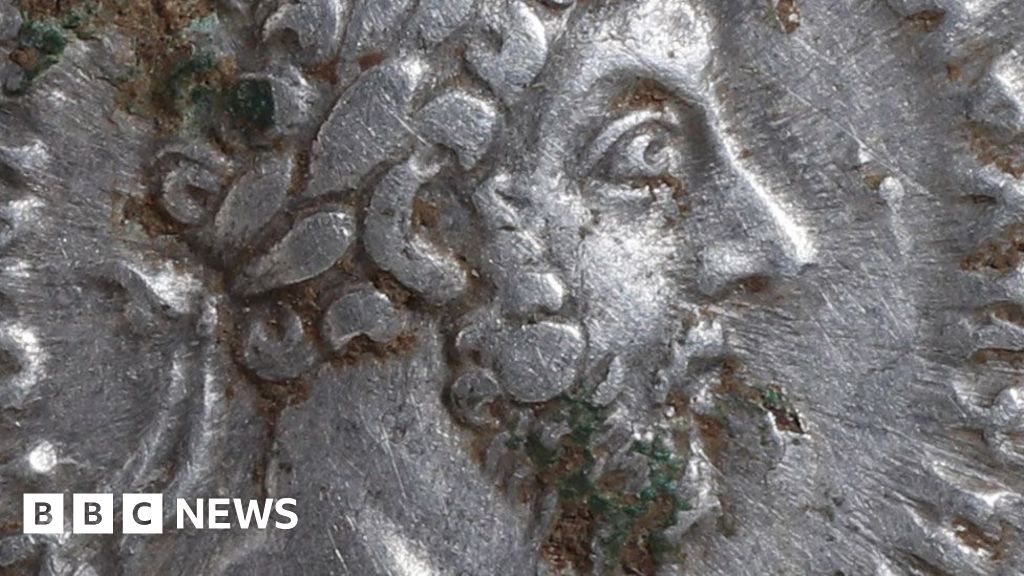Detectorist finds hoard of Roman silver coins
- BBC News
A hoard of 16 silver Roman coins spanning two centuries has been discovered in a field by a detectorist.
The denarii date from the late Roman Republic to the reign of Marcus Aurelius and his wife Faustina, and were found at Barton Bendish, Norfolk.
Coin specialist Adrian Marsden said the loss might have been the equivalent of "a few hundred quid" to its owner.
The hoard is the subject of a treasure inquest and Kings Lynn Museum is hoping to acquire it.
"Theres 200 years worth of coins in the hoard, which is what you get with a stable currency," Dr Marsden, from the Norfolk Historic Environment Service, said.
"Its similar to the 1960s when youd still get Victorian pennies in your change, although they were practically worn smooth."
The earliest coin in the hoard dates from 57BC and is also the most worn.
It was made in the Roman Republic which lasted from 509BC, when a monarch was replaced by elected magistrates, until AD27, when the empire began.
The rest of the coins show six emperors and two of their wives, with the most recent denarii dating to AD175-6.
Dr Marsden said it was impossible to know if the coins were a purse loss or had been deliberately hidden "which is simply what you do when you havent got banks".
"We do know that this part of Norfolk, the area on the fen edge around Kings Lynn, was a very prosperous part of Britain - there was a line of villas here and youve got [the countys longest Roman road] the Peddars Way - because the soil is very fertile and its prime agricultural land," he said.
"While its always very difficult to tie in coins with prices today, because the structure of society was so very different, the loss was probably worth the equivalent of a few hundred quid to its owner."
Follow Norfolk news on BBC Sounds, Facebook, Instagram and X.